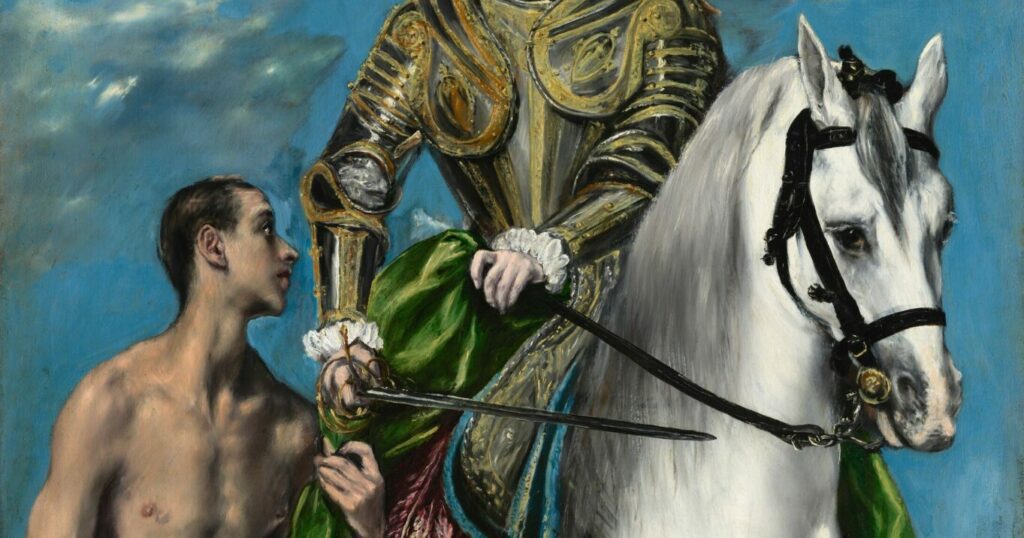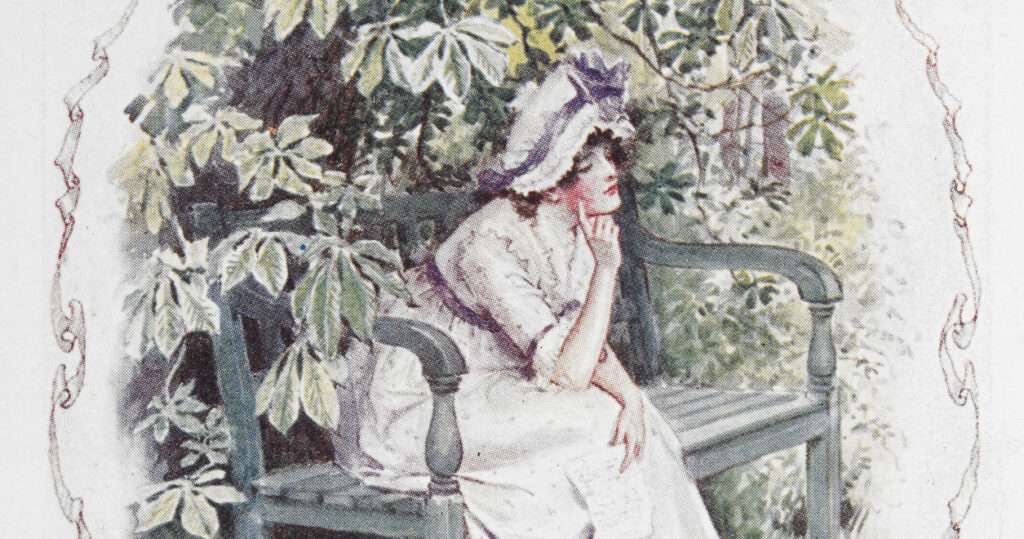A literary reflection by Sarah Reinsel on Harper Lee's "To Kill a Mockingbird." This is one installment of a monthly series providing reflections on works of literature from a Lutheran perspective.
Almost every freshman in America reads Harper Lee’s classic novel, To Kill a Mockingbird, in English class. And it is good that so many people read it — the novel is an excellent expression of what it means to love your neighbor, the vocation to which every Christian is called.
Atticus Finch’s famous line — “You never really understand a person until you consider things from his point of view … until you climb into his skin and walk around in it” — serves as the linchpin for the novel, and Scout Finch, his daughter, serves as our fearless narrator. In episodes both comic and serious, Scout slowly figures out how to live and love in light of her father’s wise words.
Lessons in everyday love
Scout is young — very young to be dealing with sins as grave as racism and problems that run as deep as generational poverty. At the time of the novel’s famous courtroom scene, where she witnesses her father defending Tom Robinson, a black man falsely accused of raping a white man’s daughter, Scout is eight years old.
It is striking how this incredibly serious plotline — where the life of an innocent man is at stake because of the evil prejudice of another man — is woven into the daily life of a young child. After all, Scout is also still learning why she must not say “pass the damn ham” at Christmas dinner or beat up the boys who are mean to her at school. Everyday love of neighbor is a lesson that Scout learns right alongside her maturing sense of deep divides and prejudices in Maycomb, her small Southern town: Why does Aunt Alexandra care so much about the Finch family name? Why doesn’t her teacher, Miss Fisher, understand not to lend money to a Cunningham?
With each of these episodes, Scout eagerly waits for her father to come home from work, climbs into his lap and asks the child’s question: “Why?” He gently reminds her to consider things from the other side because that will enable her to better love and respect her neighbors, even and especially when they are small-minded, ignorant, or rude.
“The common order of Christian love”
After Atticus agrees to defend Tom Robinson, Scout has to put these everyday lessons about how to love her neighbor to use as she faces a sweeping tide of criticism from her neighbors, classmates, even family about her father’s decision. Once again, Scout is bewildered. Why has Burris Ewell accused Tom Robinson of such a terrible crime? Why does Atticus take the case, and why is Maycomb in uproar over it?
Atticus explains to her: “Tom Robinson’s case is something that goes to the essence of a man’s conscience — Scout, I couldn’t go to church and worship God if I didn’t try to help that man.” Another time, he explains again: “If I didn’t [take the case], I couldn’t hold up my head in town, I couldn’t represent this county in the legislature, I couldn’t even tell you or Jem not to do something again.”
Martin Luther says that every Christian has multiple vocations, or callings, to three estates: the church, the state, and the household. Notice how Atticus names all three of these estates when he explains to Scout why he took on Tom Robinson’s case. He couldn’t go to church, serve on the legislature, or even parent his own children in good conscience if he stood by without helping this innocent man.
At one point, Miss Maudie, a beloved and wise neighbor of the Finches, tells Scout that her father is “the same in his house as he is on the public streets.” Atticus serves admirably and nobly in all of the vocations to which he is called; his actions are consistent in each estate, and he demonstrates that true virtue is a habit. For Atticus, “Climbing into the other’s skin” is a habit of mind that has prevented his conscience from being warped and worn down by prejudice and hypocrisy. Furthermore, by reaching a proper understanding of his neighbor, he is able to truly seek their good and love them.
Luther ups the ante after outlining each of the three estates: “Above these three estates and orders is the common order of Christian love, by which we minister not only to those of these three orders but in general to everyone who is in need.”[1]
“The common order of Christian love” is a wonderful phrase; it binds all three estates together and makes it clear that love of neighbor is the end of all vocations, no matter the estate to which you are called.
Lessons in habitual love
In The Spirituality of the Cross, Gene Veith explains that Luther’s “common order of Christian love” is “the realm of the Good Samaritan, of friendship, of the everyday interactions of the people whom God has brought into your life and whom God calls you to love and serve.”[2] In other words, loving your neighbor is a daily, habitual, tangible, constant vocation.
Atticus understands this, and Scout slowly learns it. One last plotline in this wonderful book drives it home: the story of Scout, her brother Jem, and her friend Dill, and their bright idea of “making Boo Radley come out.”
Boo Radley is the town recluse; the Radley family story is sad and strange. Gossip about Boo Radley runs wild and nearly everyone in Maycomb should be ashamed of themselves for what they have had to say about him, especially because it leads to children like Jem claiming that Boo lives off of raw squirrels.
These children are as childish as can be in their silly attempts to lure Boo Radley out of his house; yet, as we find out by the end of the novel, Boo has always responded to their antics in complete kindness, befriending them by leaving small gifts for them to find in the knothole of an oak tree and even keeping watch over them.
Though Mr. Ewell wins the court case, and his false accusation is forever buried when Tom Robinson is tragically killed while in prison, Atticus has (justly) discredited any shred of honor that Mr. Ewell had in the first place. And even though Atticus is kind and courteous to Mr. Ewell to the very end, Mr. Ewell later seeks revenge for his ruined reputation by attacking Atticus’ children when they are coming home from a Halloween party at their school.
Boo Radley stops Mr. Ewell, killing him in the struggle and saving Jem and Scout’s lives.
It’s never explained how Boo Radley got to be in the right place at the right time. But it seems that Boo Radley is attentive enough to the goings-on of the town and the children’s little lives to have known when Jem and Scout were in harm’s way.
Though his life and actions are as hidden as Atticus’ are public, Boo Radley shows the same daily, tangible, constant love to his neighbors, Jem and Scout. Both men demonstrate the vocation of every Christian to the common order of Christian love. In the midst of a lot of bitterness, wrath, anger, slander, and malice, they are tenderhearted, imitators of God, walking in love as Christ loved us (Eph. 4:29–5:2).
And Scout?
Well, she learns to love her neighbor. She imaginatively stands in Boo Radley’s shoes and regrets all the ways she and Jem and Dill were bad neighbors towards him. She immediately understands why Boo Radley’s heroism will never be made public — the limelight would be a torment to him. She remembers the deep injustice that the town has also done to Tom Robinson, and reasons that any injustice done to Boo Radley, too, would be like killing a mockingbird. And she continues to strive, sometimes haplessly, sometimes heroically, to be an imitator of Christ, as her father is.
Image: The George F. Landegger Collection of Alabama Photographs in Carol M. Highsmith’s America, Library of Congress, Prints and Photographs Division.
[1] Martin Luther, “Confession of March 1528,” in The Augsburg Confession: A Collection of Sources, ed. J.M. Reu (Chicago: Wartburg Publishing House, 1930), 27.
[2] Gene Veith, The Spirituality of the Cross (St. Louis: Concordia Publishing House, 2021), 133.






We are starting a retired ladies book club @ St John’s in Fayetteville AR. This would be a perfect site for us!